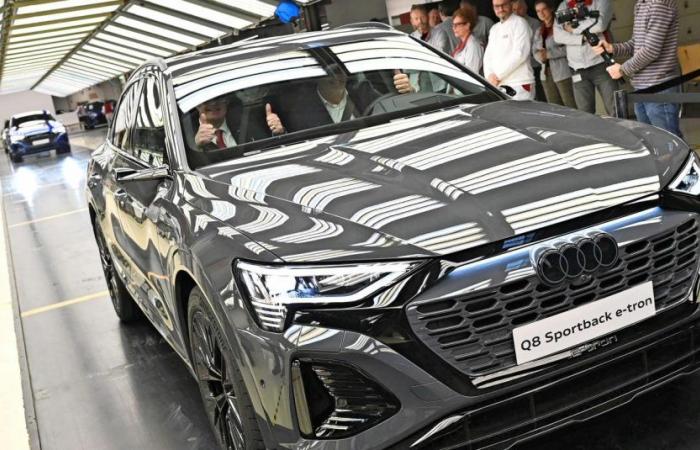Sales of electric cars are falling around the world. Only one small country is resisting: Belgium. But for how long?
Automotive analysts from the American agency Bloomberg predict a average annual growth of 21% in the global electric car market over the next four years. This may seem like a lot, but between 2020 and 2023, 61% was recorded. With such a curve, the automotive sector will never be able to meet the “net zero emissions” scenario, which aims to make the world’s energy supply carbon-free by 2050.
Both in Europe and America and even China, 2024 sales remained well below forecasts. Of major manufacturers such as Mercedes, Volkswagen, General Motors, Ford and Renault returned to their project to produce only zero-emission cars from 2030. Korean Hyundai, which has bet heavily on a rapid transition to an entirely electric range, recently announced a change of strategic direction: under pressure from disappointing sales figures, it returns to the plug-in hybrid as an intermediate step towards zero emissions. The Swedish battery manufacturer Northvolt, specializing in lithium-ion technology for electric cars, has announced a major restructuring. A decision taken shortly after Volvo Carsmain buyer and partner in a joint venture for the construction of a gigantic battery factory, also has abandoned the 2030 deadline to go “all electric”.
Most manufacturers are backtracking on the move to all-electric.
Perhaps the most striking sign is the crisis experienced by Europe’s largest car manufacturer, Volkswagen AG. In early September, a leak revealed that VW was considering closing factories in Germany for the first time in its 90-year history. But also in Belgium where the 3,000 workers at Audi Forest learned that their site would permanently close its doors at the end of 2025. VW, like all European manufacturers, is struggling to cope with the transition. Overcapacity and excessive stocks due to disappointing sales, the production of electric cars is also in deficit. It is therefore not surprising that a major restructuring would put an end to the activity of a relatively small assembly site in an equally small neighboring country. The model produced in Forest didn’t help… The Audi Q8 e-tron, a 2.5 ton SUV, has an entry-level price of 91,000 euros! Ideal as a company car for bosses, much less compared to what the rest of the market expects. The future of the electric vehicle as a “people’s car” indeed rests on models costing around 20,000 euros, with a range of around 350 kilometers. In this price range, the Chinese reign supreme, shipping new makes and models to Europe every month.
«European manufacturers have focused on premium for too longanalyzes Philippe Vangeel, spokesperson for EV Belgium. They did this even before the arrival of the electric car, because this segment offered much higher profit margins. With EVs, it no longer works.” Even Tesla, the world leader, barely manages to make a profit on its Models Y and 3, partly produced in China. Figures from the European sectoral federation ACEA illustrate the Belgian exception. While in July the share of EVs in European sales fell by almost 11%, it increased by 44% in Belgium. According to the gocar.be website, this is a temporary phenomenon, purely due to tax advantages and bonuses, mainly in Flanders. Next year, a collapse in sales is also predicted here.






